If You're Over 65, Don't Wear These 5 Clothing Items When It Snows
Skip these wardrobe mistakes when the temperatures drop.
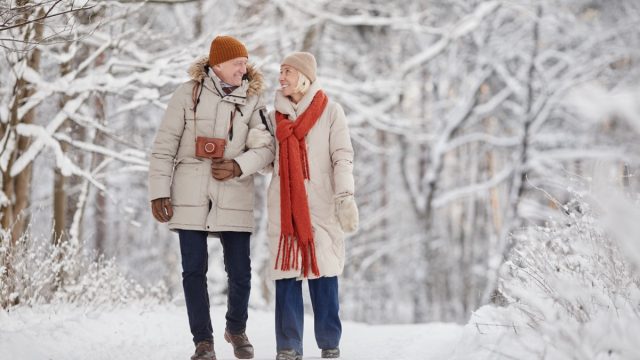
Deciding what to wear can be a tough proposition—even when the weather is cooperating. Throw in a wintry mix of snow and slush, and you may find your wardrobe choices even more overwhelming. Adults over the age of 65 should be especially thoughtful when it comes to winter dressing, experts say.
"With snow, ice, and freezing temperatures, winter weather can pose a serious health hazard to seniors," Sarah Arfeen, chief editor of Senior Care Corner, tells Best Life. However, she notes that it's important that seniors keep up with their activities throughout the year and also enjoy the winter season.
Wondering what not to wear in inclement winter weather? These are the five clothing items to avoid when it snows, according to the expert.
RELATED: If You're Over 65, Don't Wear These 6 Clothing Items to Exercise.
1
Cotton clothing
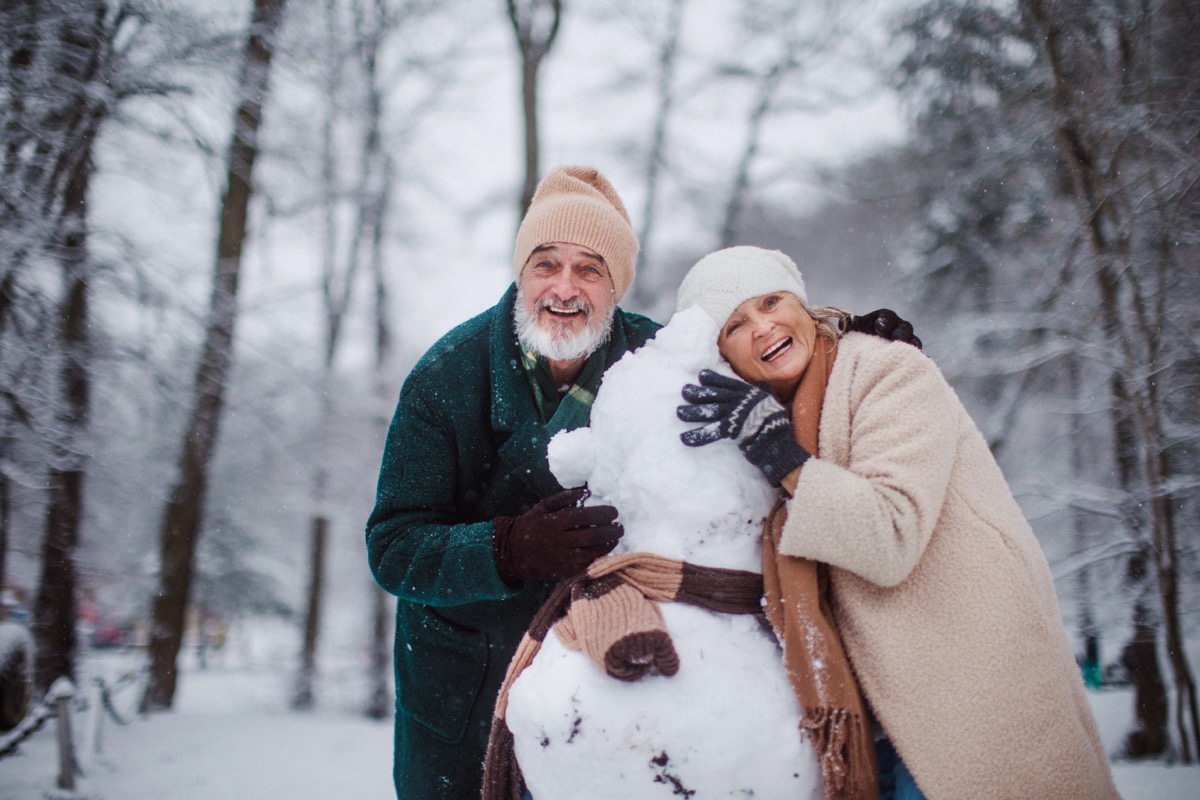
When the temperatures drop—and especially if it's wet outside from snow or sleet—it's a good idea to layer with wool, fleece, or insulating fabrics. However, cotton may do more harm than good, Arfeen suggests.
"Cotton is a natural fiber, but when wet, it loses its insulating properties. In cold weather, if cotton clothing becomes wet from snow, rain, or sweat, it can quickly draw heat away from the body, leading to discomfort and an increased risk of hypothermia," she says.
2
Too-tight clothing
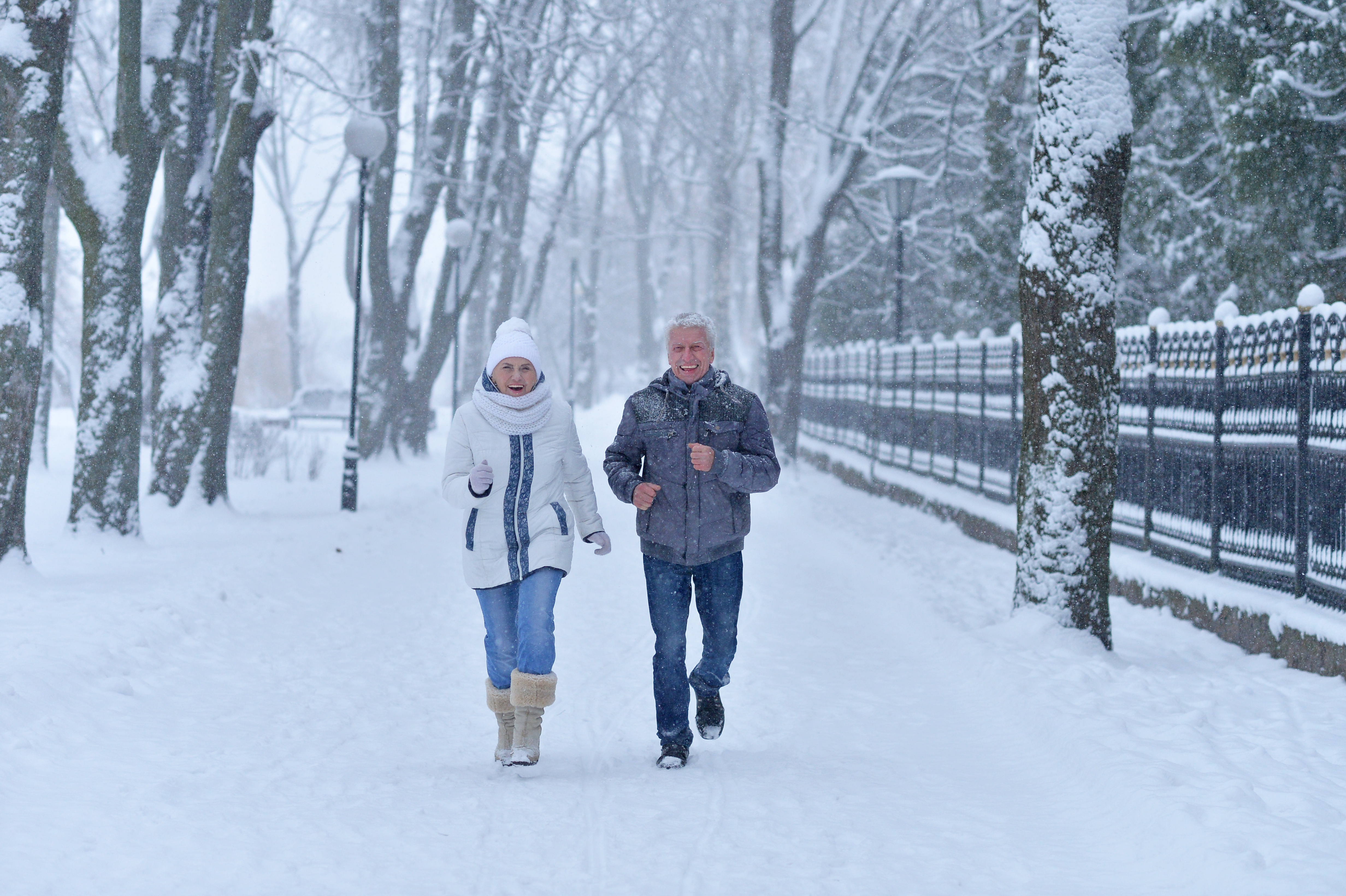
Layering your clothing can take a slightly snug item and make it downright constrictive. That's why Arfeen recommends opting for looser layers, which will add insulation without causing discomfort or limiting your mobility.
"Tight clothing can restrict blood circulation, particularly to the extremities," she says. "In snowy weather, proper blood circulation is crucial for maintaining warmth in the hands, feet, and other areas. Impaired circulation increases the risk of frostbite and discomfort."
RELATED: 5 Items You Shouldn't Wear on Hot Days If You're Over 65.
3
Denim
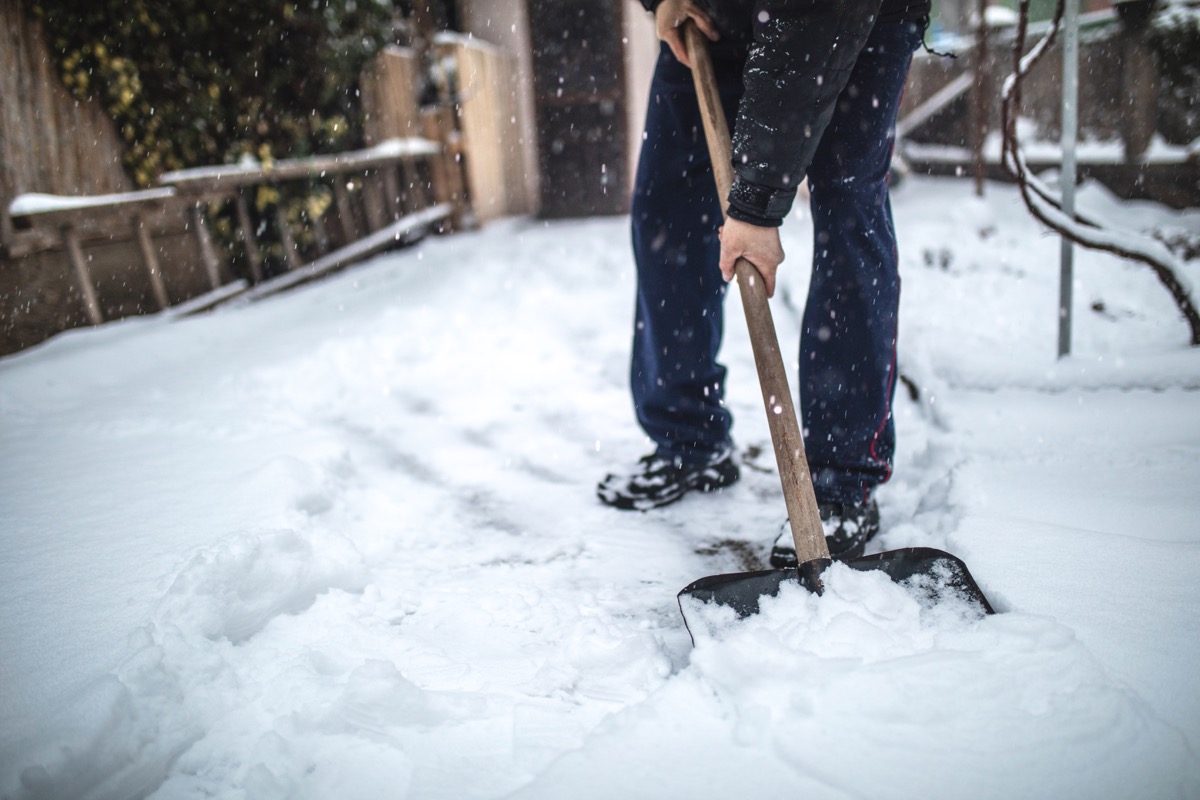
If you wear denim daily, you may want to make snow days the exception to the rule.
"Denim is a thick and heavy fabric which we often believe will offer protection, but it can become stiff and uncomfortable when wet. It also absorbs moisture, making it a poor choice for snowy conditions where staying dry is essential for maintaining warmth," Arfeen says.
4
Metal jewelry
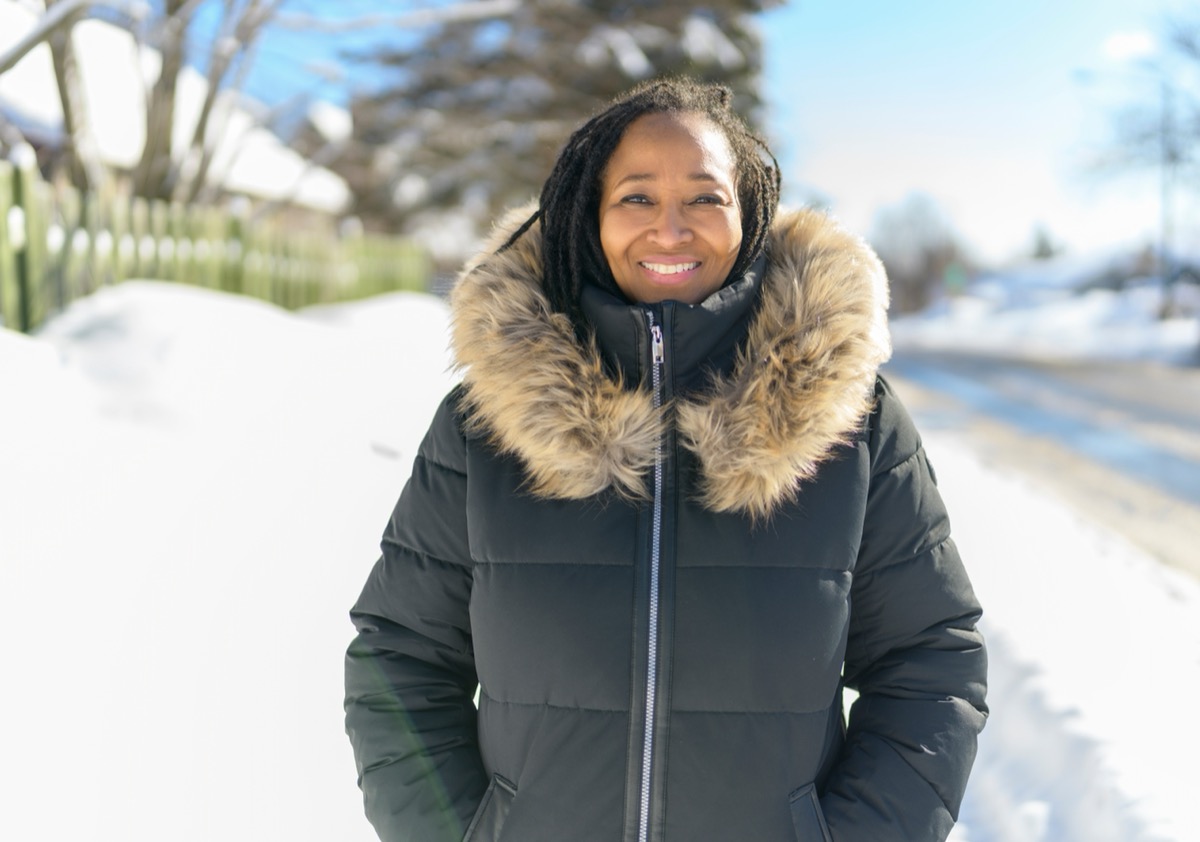
Your accessories can also have an impact on your comfort and well-being. Arfeen suggests pairing down your selection on the coldest days of the year.
"Metal has high thermal conductivity, meaning it can quickly become very cold when exposed to low temperatures," she explains. "If seniors wear metal jewelry outdoors in snow, it can make their skin colder and increase the risk of discomfort, especially in extremities like fingers or ears."
RELATED: If You're Over 65, Don't Wear These 5 Clothing Items When Traveling.
5
Frayed or worn out winter accessories
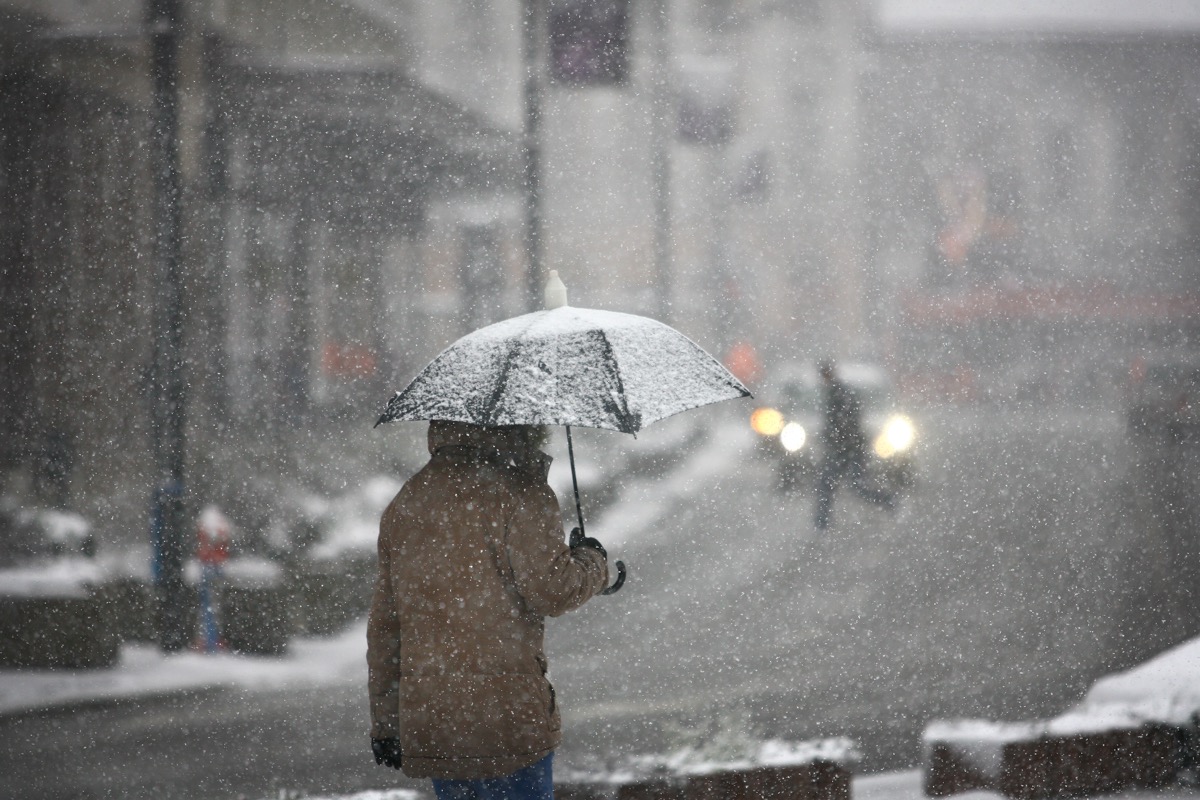
Finally, it's always essential to wear well-maintained clothing in snow and frigid temperatures. Arfeen warns that oftentimes, regular wear and tear can create gaps or openings in the fabric, allowing cold air to penetrate and body heat to escape.
"To ensure optimal comfort and protection in snowy conditions, seniors should regularly inspect their winter accessories for signs of wear and tear," Arfeen says. "Over time, these items can lose their ability to retain heat effectively, exposing seniors to the risk of feeling cold and uncomfortable out in the snow."
For more health and safety tips sent directly to your inbox, sign up for our daily newsletter.





















